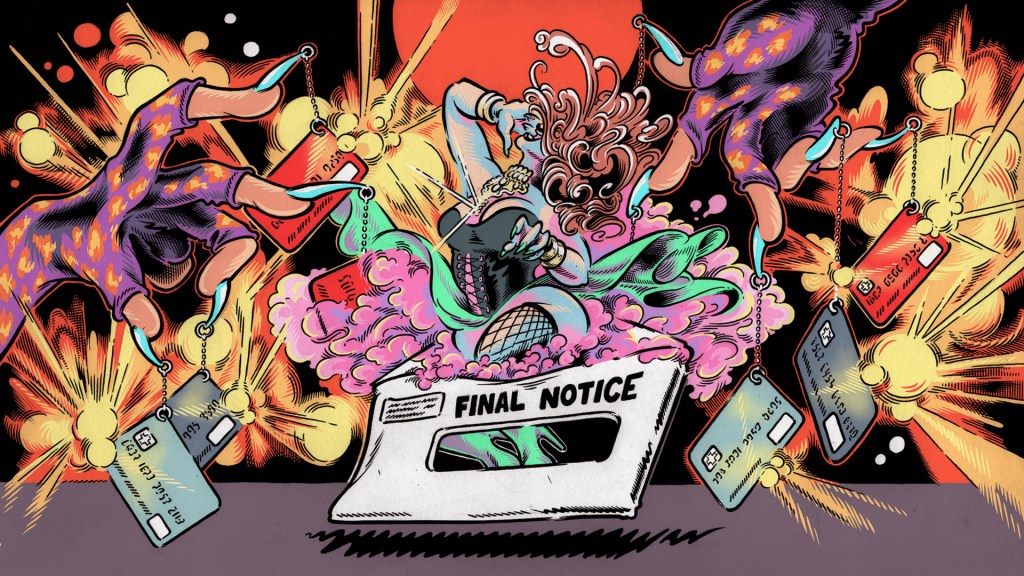On Monday, the same day that the New York Times dropped yet another bombshell investigative report about Donald Trump’s incredible ability to lose money by the hundreds of millions, USA Today shared some advice for the average American: Don’t buy so much bottled water. Apparently, if the average adult in the United States would lessen, or outright eliminate, what the paper called “nonessential items,” they would save roughly $1,497 a month, or as much as around $18,000 a year.
This statistic, part of a column from USA Today‘s “content partner” the Motley Fool, came from a poll commissioned by Ladder, an insurance company. “Nonessentials” include “personal grooming,” which runs our hypothetical average American $94.25 a month. Coffee, another nonessential, sets that same American back $20.25. “Gym classes and memberships” cost about $73. (What could you do with that extra money? One suggestion, per the column: Get life insurance.)
Videos by VICE
It’s a column that seems tailor-made to annoy millennials, who have been told for years that their addiction to avocado toast is preventing them from buying a house. In December 2018, CNBC published a pie chart of the “excellent” financial habits of a millennial LSAT tutor who rakes in $100,000 annually, shells out $400 a month on groceries, and donates $615 to his favorite charities. Social media users erupted with rage at the idea someone earning that salary represented the average millennial, and the “nonessential” column was similarly mocked. On what grounds do these publications judge our spending habits? We’re being told, essentially, that we should accept being a little tired, having hair a little too long, and being a little out of shape in order to achieve financial stability.
But the articles are also an example of a deep strain of American thinking, which posits that we’re just a proper budget and a pair of bootstraps away from saving ourselves from poverty. Elizabeth Warren criticized this precise point in a series of books devoted to this dilemma: Sure, human beings should be responsible, but that doesn’t change the fact that many poor and middle-class Americans are born into a system that’s dead-set on exploiting them. The problem isn’t that people are spending money on nonessentials; it’s that so many can barely afford healthcare or housing. Warren has dismissed the “Over-Consumption Myth” as “little more than a fairy tale,” and many people these days understand instinctively that it’s wrong. But it won’t die.
It might be easy to cast aside a graphic that claims “buying lunch” is “nonessential,” but the cult of self-improvement stretches far beyond a single poll or column. Self-help literature lines the shelves of America’s chain bookstores (and the front page of Amazon), and we still love a rags-to-riches story as proof that our lives are, above all else, self-improvable.
That’s a comforting, Protestant-tinged myth, but it is a myth. According to a poll released last month by Monmouth University, even with the economy generally improving, a majority of Americans say their financial situations are not improving, with healthcare costs among their biggest concerns (one of many items that is difficult to reduce through budgeting). As of February 2019, 44.7 million Americans have student debt, with a nationwide total of approximately $1.5 trillion. Most millennials can’t even afford homes. We’re so at a loss for the looming catastrophe of what to do with our aging population that Jimmy Buffett–themed retirement facilities seem like decent options.
It’s not hard to get angry, especially when a newspaper column suggests that our struggles can be chalked up to that latte we had this morning. It’s an insidious line of reasoning: If you’re too poor to afford to pay down your debts, you need to tighten your belt. If you’re rich, you don’t need to worry—you must be doing everything right.
Sign up for our newsletter to get the best of VICE delivered to your inbox daily.
Follow Alex Norcia on Twitter.




